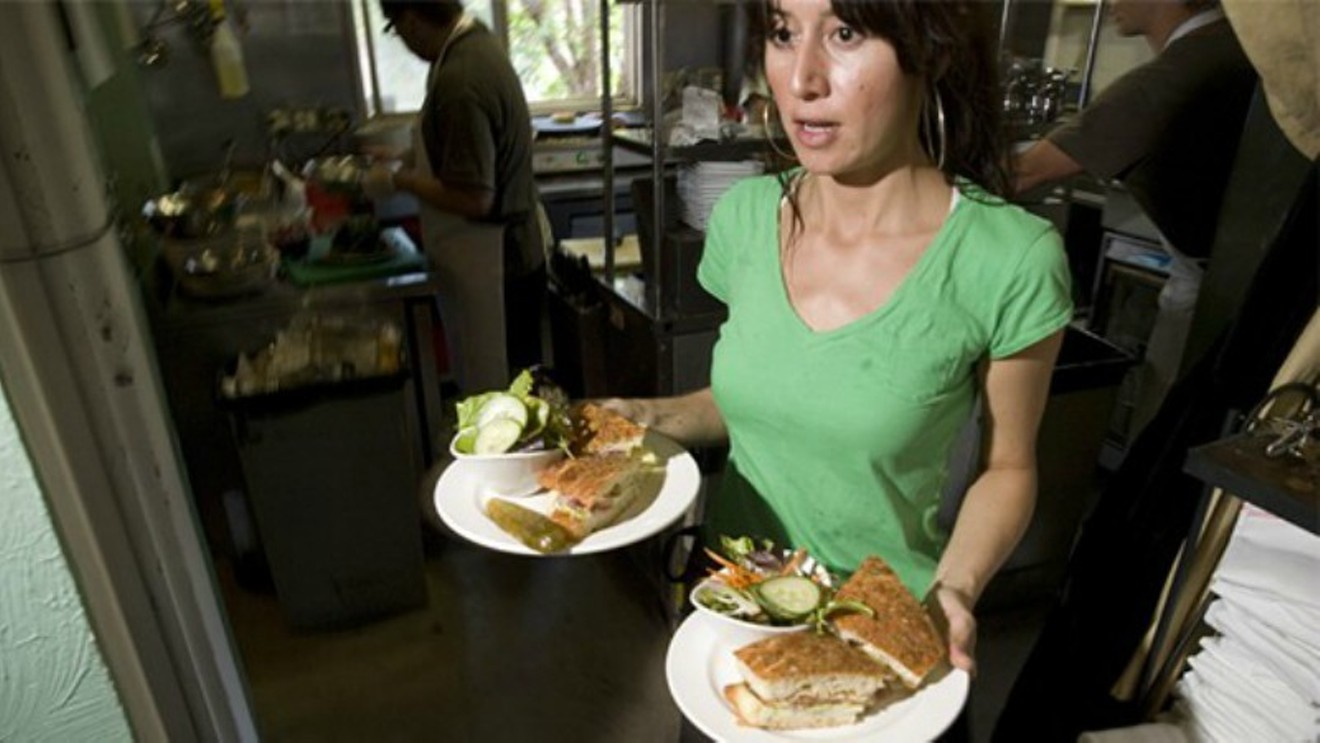In other words, food servers in spots such as Denver, Boulder and ritzy ski resort destinations might earn more each hour than peers in rural parts of the state, where everyday costs are much lower.
"When we were working on the campaign to pass the minimum-wage increase to $12 by 2020, one of the things we heard from communities mostly along the Front Range, but other communities as well, is, 'That's great. We definitely need an increase in the minimum wage. It's overdue,'" says Michelle Webster, manager of research and policy analysis for the Colorado Center on Law & Policy, which supports the measure. "But for some communities, even raising the minimum wage to $12 an hour isn't enough. The cost of living has increased so quickly in some areas of the state that those economies could support a higher minimum wage."
House Bill 18-1368, also known as the Local Wage Option, is sponsored by representatives Jovan Melton and Jessie Danielson (and co-sponsored by senators Dominick Moreno and Michael Merrifield). It's accessible at the bottom of this post, and as you'll see, the language it contains represents a 180-degree turn from current policy.

Supporters of Amendment 70, the 2016 ballot measure to boost the minimum wage in Colorado.
File photo
In Webster's view, this shift reflects what's really happening in Colorado. "This allows local municipalities to set a minimum wage that makes sense for them through whatever process they use to make changes to local policy. They can set it at whatever makes sense," as long as it's not lower than the overall state standard. She adds, "It would be a community-driven process where the local policy makers, community members and business owners could work together to determine what makes sense in that community."
The measure is scheduled to be heard at 1:30 p.m. on Wednesday, April 18, by the House's local government committee, with a preview panel discussion getting underway at 12:40 p.m. in the Capitol's basement level. In advance of these sessions, proponents are circulating a letter that specifically uses the high price of housing in Colorado as a rationale for it. That entire document is also shared below, but here's an excerpt:
Rents and other living costs are increasing alongside Colorado’s booming economy. Between 2012 and 2016, average rents in Colorado increased six times faster than wages. Every year, family budgets become increasingly tighter. Adding to the problem is the fact that Colorado’s current minimum wage is much lower than what people need to live in many Colorado counties.The letter has already been signed by dozens of business owners, current or former elected officials and faith leaders, among others. But while no organized opposition to the bill has materialized yet, Webster is under no illusion that it will sail through the legislature without sparking a single complaint.
The Local Wage Option seeks to address these problematic trends. The Local Wage Option would allow local jurisdictions to adjust the minimum wage in their communities to more effectively address their local cost of living. Because living costs vary considerably among different communities in Colorado, it makes sense to allow localities to determine the minimum wage that makes sense for them.
"I'm sure there will be some pretty vocal opposition," she concedes, "and my guess is that we'll hear many of the same arguments we heard during the Amendment 70 campaign."

A graphic used by opponents of Amendment 70, the 2016 ballot measure that will raise the minimum wage to $12 per hour in Colorado by 2020.
File photo
Backers of HB 18-1368 also note that some of the talking points used against Amendment 70 practically sound like endorsements of the new approach. Indeed, Sandberg told us, "If you're from Colorado, you know there's no way a family-owned Mexican restaurant in Alamosa will be able to pay the same starter wage as a big corporation in Cherry Creek. People from Colorado get that."
At the same time, Webster acknowledges that the new bill is bucking national trends. "As of July 2017, according to the National Employment Law Project, 25 states had passed laws that preempt cities from passing their own local minimum wages. So what we've been seeing most recently is kind of the opposite of what's happening in Colorado. In other places, we've seen cities move to increase the minimum wage, and then the state, in response, has passed a preemption law, so the local minimum wage doesn't go into effect."
That can't happen in Colorado if the bill is approved, and Webster feels business owners will get just as much out of it as employees. "We know that local economies, in particular, depend on people in those communities being able to spend money at local businesses," she says. "And everyone does better when people across the income spectrum have enough money to support their basic needs and the local economy."
Click to read House Bill 18-1368 and the local wage option support letter.












